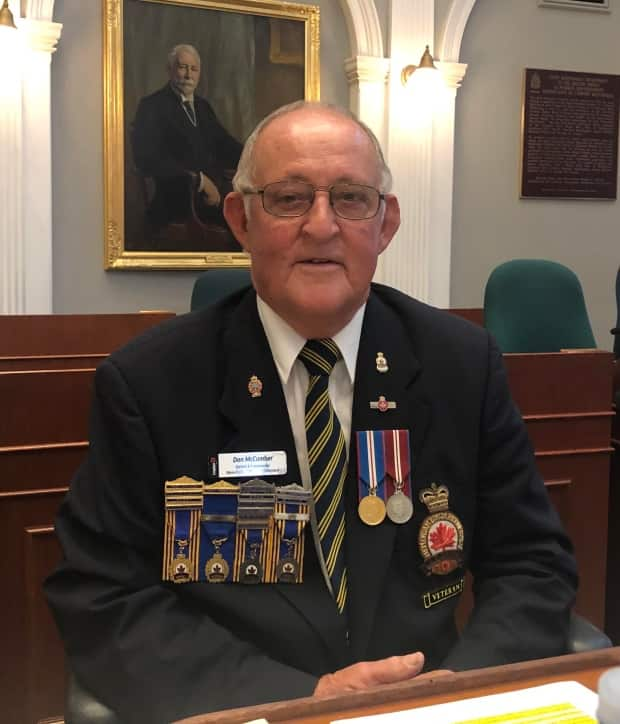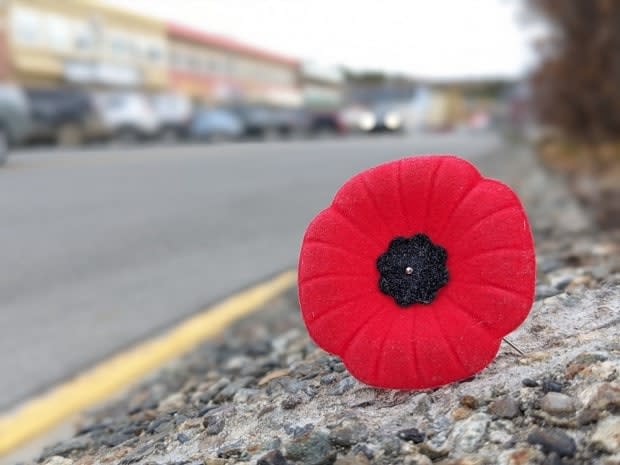N.S. legions worry poppy campaign will suffer under COVID-19 restrictions
Two Royal Canadian Legion representatives appeared before a legislative committee Tuesday to urge provincial politicians to do their part to boost poppy donations this year.
Pandemic restrictions mean legion volunteers will not be allowed into stores or malls as usual next month to solicit donations in exchange for poppies. Some stores will still allow donation boxes to be placed at entrances, but volunteers will not be allowed to oversee them.
"We certainly do expect a drop in the generation of funds on a community level," Valerie Mitchell-Veinotte, executive director of the Royal Canadian Legion's Nova Scotia/Nunavut Command, told the legislature's veterans affairs committee.
"It is solely the poppy campaign funds that are raised that support veterans and their families and without that, the supports we're able to provide as a volunteer, not-for-profit charitable organization will be greatly reduced."
$771K raised in N.S. last year
The poppy campaign is the legion's major fundraising effort. Last year, 100 branches across Nova Scotia raised $771,000, with almost all of that going to support programs for former members of the Canadian Forces or the RCMP.
Don McCumber, the command's poppy and remembrance chair, told provincial politicians that $736,000 went to direct grants for veterans and their families, including veteran transition programs and "youth programs that foster remembrance." Donations also go toward hospitals and facilities that care for veterans.

That kind of help would be in jeopardy if donations drop this year because of COVID-19 restrictions and the fact Remembrance Day celebrations are being curtailed.
When it comes to legion halls, Mitchell-Veinotte told CBC News some may be forced to close as a result of declining revenue, but she declined to guess how many. Most branches in Nova Scotia have a legion hall or other facility.
"Given the challenge to operate their buildings in the upcoming months, whereby utilities are likely to be more expensive ... the branches will absolutely face challenges in maintaining and operating their buildings," she said.

Mitchell-Veinotte also used the appearance before the committee to bemoan "erratic" delays experienced by retired or discharged military veterans who apply for benefits.
In some cases, Veterans Affairs Canada is processing files so slowly that veterans have to wait months — sometimes years — to get what they are due.
She told CBC News routine cases were processed "relatively quickly," but she had one file awaiting a decision that dated back 2½ years.
MORE TOP STORIES


